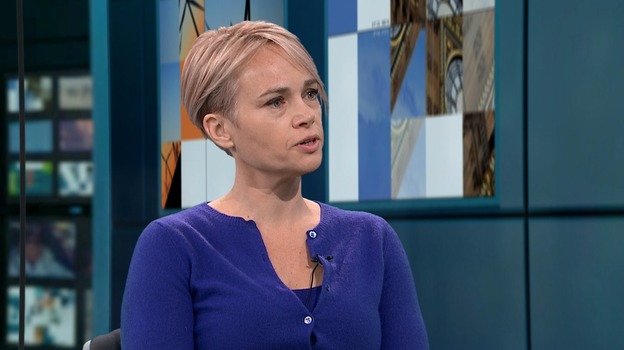The Governor of Somaliland’s drought-ravaged eastern province of Togdheer stood calmly against a backdrop of flimsy shelters created out of thorn bushes and scraps of plastic and torn cloth that had sprung up in the two months that I’d last been in the villages around Einaabo.
There were only a few makeshift camps for rural communities fleeing hunger and the threat of famine back then, now there are much more.
I asked him how things were since the last time I was here to report on Somaliland’s worst drought in over a century.
He fixed me with a grim stare before he said: “When you and your colleagues from ITV were last here, people were able to cope and could think about surviving this drought, now they are on the verge of death.”
 That was no exaggeration, and evidence I’d seen as I’d traveled crossed the self-declared Republic the previous two days pointed to one unavoidable conclusion – things are worse than when we reported from this region two months ago.
That was no exaggeration, and evidence I’d seen as I’d traveled crossed the self-declared Republic the previous two days pointed to one unavoidable conclusion – things are worse than when we reported from this region two months ago.
There are more displaced camps, with desperate families arriving each day.
In the remote villages, we visited we saw no evidence of significant international humanitarian aid being delivered.

Officials told us they have not had help from the outside world; emergency food supplement, shelter or water supplies.
Along the hundreds of miles of pot-holed but easily accessible tarmac roads from the capital Hargeisa, we came across several lorries carrying water.
But all were from local Somaliland charities or business leaders or from the Middle East based Islamic charities.
I last reported here just before the British public responded so generously to the DEC’s appeal to raise funds for the unprecedented crisis which sees four countries (including Somalia and Somaliland) facing famine at the same time.
- Nicola Peckett from the DEC explains how British donations are helping
The Somaliland government and international agencies were warning that after a staggering 10 million of the country’s 18 million livestock were lost, people were down to their last coping mechanisms.
And if the rains failed in April, the disaster would begin to engulf the human population.
Those rains have failed and earth is now being scorched dry for the third successive year.
As a result, those grim warnings are beginning to be played out.

As we drove back to the main city in the Togdheer region, Burco, our car was waved down by worried villagers.
They were carrying something or someone in a large blanket but it was difficult to make out as the figure was shrouded.
It was a young man, perhaps in his thirties, listless and barely conscious.
He had contracted cholera.

In Burco itself, the authorities were down to coping as best as they could without any international assistance.
So they have had to use the city’s school of nursing and midwifery as a temporary quarantine for people for cases such as cholera and diarrhea.
The head of the school said they were at the end of their tether as to know what to do, even paying for the fuel for ambulances out of her minimal wages for the hardest cases.
“People are beginning to die,” she told me. “Thankfully still in small numbers, but they are beginning to die… but it feels like our pleas for help have fallen on deaf ears.”
- What is the British Government doing about the crisis in Somalia?
The Department for International Development (DFID) said the UK is at the forefront of the response to the drought throughout Somalia, including Somaliland.
A spokesperson told ITV News there is a significant scale-up underway in response to the increasing need of food assistance, nutrition and heath services across the region.
Some 270,000 people were reached with food assistance in March alone, with 64,000 people given assistance to find work and training.
In the same month, nearly 72,000 children under the age of five were treated with “malnutrition treatment services” and a further 84,000 people given “malnutrition prevention services”.
The local population was also provided with seeds and tools in February and March to build their resilience to drought, with three extra mobile health clinics sent to Togdheer region to help treat cases of acute water diarrhea.



































